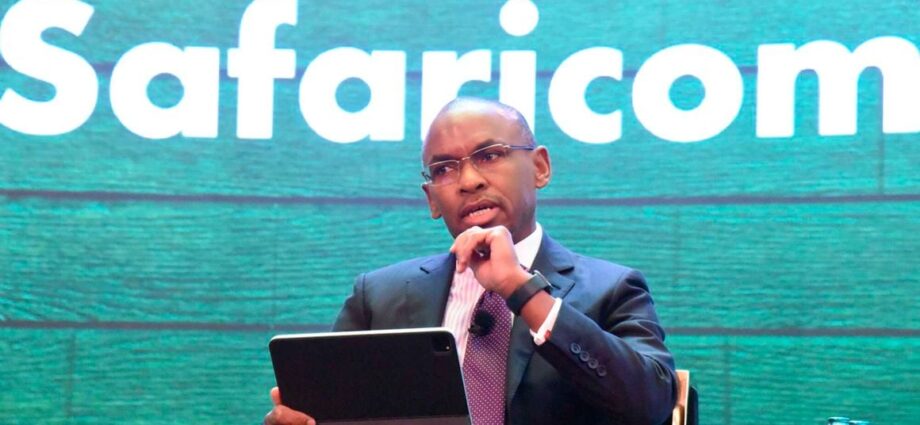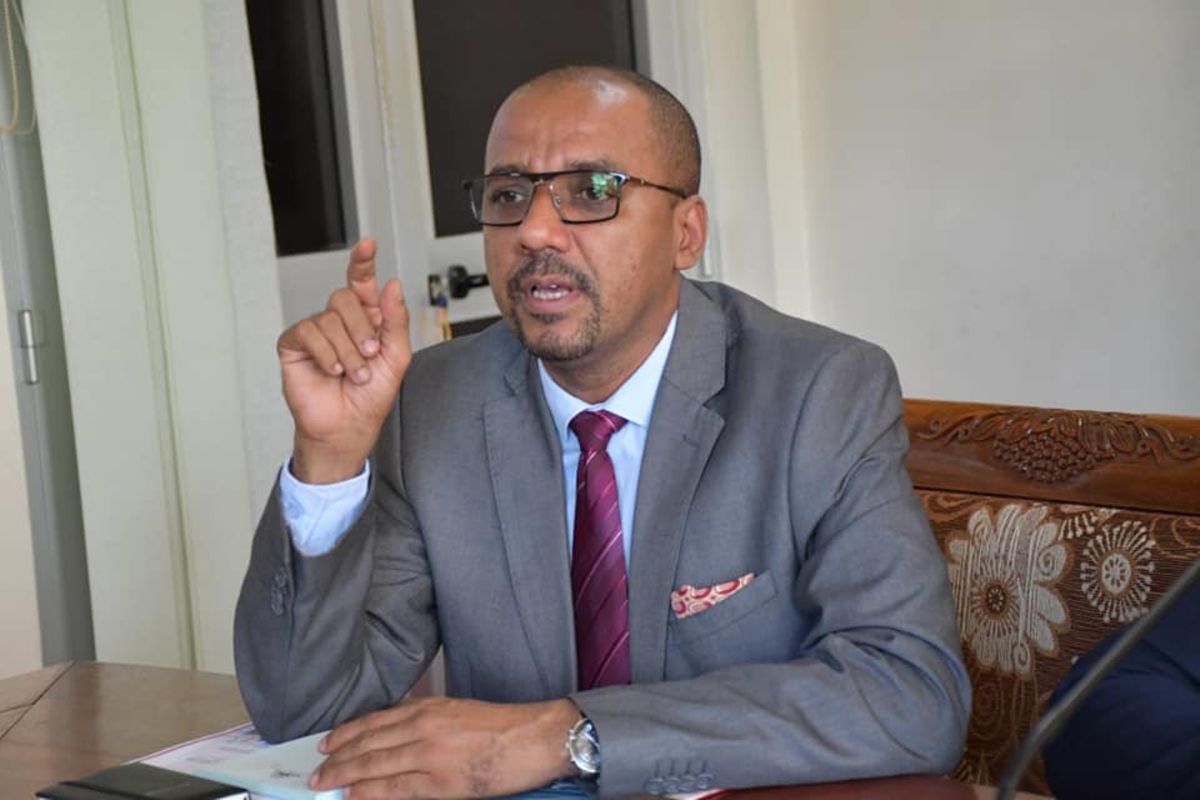Top US investor sells 600m Safaricom shares in dividend protest
Safaricom Plc CEO Peter Ndegwa during a past investor briefing in Nairobi. FILE PHOTO | NMG
An American multinational investment management firm is selling millions of shares held in Safaricom in protest over delays in dividend repatriation amid the fall of the telco’s valuation to below Sh600 billion.
FMR LLC, which trades as Fidelity Institutional Asset Management and is among the top five investors in Safaricom, has now cut its stake in the telco by about two-thirds from the highs of 921.1 million shares in September 2022 to about 314 million, according to data by Capital IQ, an integrated market intelligence platform.
Multiple sources, including local and foreign-based stock brokers and fund managers, have told the Business Daily that FMR started selling the shares in the fourth quarter of 2022 on Safaricom delays in receiving the dividends due to difficulties in getting dollars from the Kenyan market.
“FMR’s decision on Safaricom holding is mainly because of the delay in being able to repatriate their dividends. This breached an internal requirement for them as it would for other foreign investors,” said one of the sources who runs a fund for listed equity investments in multiple countries including Kenya.
“It can be disastrous for foreign investors, typically pensions, endowments, and asset managers with regular distribution obligations to not receive scheduled dividends and sale proceeds, and it is normally a significant red flag that leads to a withdrawal of foreign investors.”
FMR has been cutting its stake, including the 92.5 million shares it sold in December alone or an equivalent of 61.3 percent of the 150.99 million Safaricom shares traded during this period. This has come amid the drop in the telco’s share price.
The decline from Sh29.82 on September 5, 2022 to Sh13.30 at the close of Friday trading has cut the telco’s valuation on the Nairobi Securities Exchange (NSE) from Sh1.19 trillion to Sh532.9 billion, marking a 55 percent drop.
Another broker said FMR has been responding to “market bids for one million shares or more” and continues to offload the shares. The broker said FMR has been averaging two million sales a day.
The US firm, which is one of the largest asset managers in the world, continues to sell the shares, increasing fears that it could be mulling fully exiting the stock that a fund manager told Business Daily is “the jewel in the crown” for top investors seeking a share of Corporate Kenya.
Reports of delays in repatriation of dividends corroborates statements by Safaricom CEO Peter Ndegwa who in a November 9, 2023 call with investors said there had been delays of up to four months.
“We know that in Kenya there has been a challenge from a liquidity perspective on currency and many people, probably on this call, would have faced those challenges from a dividend repatriation perspective. We used to see anywhere between four to six months backlog in terms of dividend repatriation or share sales repatriation,” said Mr Ndegwa.
Safaricom paid a Sh0.75 per share dividend amounting to Sh30 billion on August 31, 2022. Assuming FMR held all the 921 million shares by the dividend date, it would have been due for a dividend of around Sh587 million after paying the 15 percent withholding tax.
The continued offer for the sale of Safaricom shares has meant the number of shares available are more than the demand, a scenario that has contributed to the share price drop from Sh31.13 in mid-August 2022 to an all-time low of Sh11.50 on November 6 last year.
Safaricom share has since January shed 2.9 percent of its value and is currently underperforming on the NSE 20 Index and NSE All-share index that have gained 2.3 percent and 0.4 percent during this period.
Safaricom recently declared a Sh23.03 billion interim dividend but this has failed to cause excitement on the bourse as has been before when such an announcement triggered a price gain.
The 92.5 million shares FMR sold in December alone equalled about 3.1 million shares a day that brokers say is a significant proportion of daily volumes and also a huge amount for local pensions and other investors to try to match.
“The FMR volumes mean this selling must be a huge contributor to the share price decline. It is unsurprising to us that this has resulted in the slump in the share price of the jewel in the crown for Corporate Kenya,” said a fund manager.
The FMR selling has been alongside others such as Harding Loevner LP – another US foreign investor — that has sold more than 100 million shares in 15 months to the end of December. Harding has, however, been reducing its stake since 2019.
Nikko Asset Management Americas and Wellington Management, both located in the US, in December sold a combined 48.17 million shares, according to data from FactSet Research Systems, a US financial data and software company.
Safaricom and banks are consistent dividend payers and have to source dollars to pay foreign investors. This exerts pressure on the exchange rate.
Mr Ndegwa says the telco plays a key role in “what happens in the market in terms of FX (foreign exchange) availability.” He told investors that in terms of whether foreign investors can now take money out, “we’re in a much better place” compared to 12 months earlier.
Brokers and custodians within and outside Kenya say the delays in repatriation of dividends to foreign investors began between August and October 2022, right around the time that FMR is believed to have started selling. This ties in with Mr Ndegwa’s assertion.














